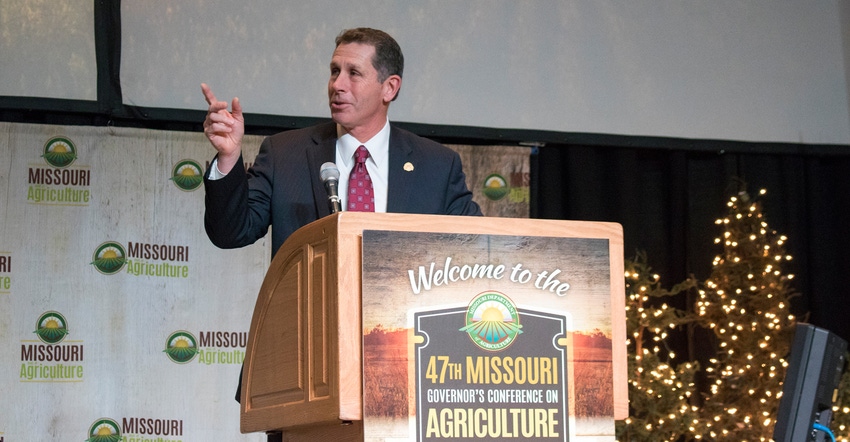
On the whole, agriculture's economic contribution to Missouri totals $88.4 billion, according to a new extensive study commissioned by the Missouri Department of Agriculture and Missouri Farm Bureau.
"The results of this study confirm what we’ve always known, that agriculture is the state’s No. 1 industry, and second place isn’t even close," Richard Fordyce, director of agriculture, said during the recent Missouri Governor's Conference on Agriculture, where the economic study — completed by Iowa-based Decisions Innovation Solutions — was unveiled. The new number incorporates crops, livestock, forestry and fishery production; agriculture inputs and services; food and related products manufacturing; and forestry products manufacturing.
For years, Fordyce and others in the industry have been using estimates regarding direct production agriculture like crops, livestock and forestry products that hover around $12.5 billion, but now realize that the number is too low.
This new number is important to help educate both consumers and legislators about the importance of agriculture to the state, according to Dan Cassidy, Missouri Farm Bureau chief administrative officer. He points out that legislators are crafting laws that impact farmers and ranchers, but have few ties to the industry.
In the Missouri General Assembly, there are 34 members of the Missouri Senate. Yet, Cassidy points out, just four seats are tied directly to agriculture — that is, just 12%. The Missouri House of Representatives has 163 members. "Eleven are tied directly to agriculture," he notes. "That is less than 7% in the Missouri House.
"In terms of value added, jobs and taxes," Cassidy says, "we now have new ammunition to talk about the importance of agriculture in our state."
Ag's impact
According to the study, in 2016, agriculture, forestry and related industries in Missouri contributed:
• $88.4 billion in economic impact ($33 billion in value-added production, plus $55.4 billion in inputs)
• 378,232 jobs
• $17.5 billion in labor income
• $2.2 billion in state and local taxes
• $4.0 billion in federal taxes
Of the $33.0 billion in added value from the agriculture, forestry, and related economic activity:
• Crops, livestock, forestry, and fisheries production contributed: $9.4 billion
• Agriculture inputs and services contributed: $5.0 billion
• Food and related products manufacturing contributed: $15.5 billion
• Forestry products manufacturing contributed: $3.2 billion
Of the industries studied, the following are the top three contributors of value-added to the state of Missouri:
1. Breweries: $2.9 billion
2. Oilseed farming: $2.3 billion
3. Dog and cat food manufacturing: $2.3 billion
It's not just rural
The study showed that the agriculture industry does not just impact the rural areas. It revealed the importance of Kansas City and St. Louis as key economic drivers. Spencer Parkinson, executive director of Decisions Innovation Solutions, the company that completed the study, pointed out that St. Louis County had the highest of all value-added industries. Agricultural, forestry, and related industries in that region contribute $17.8 billion in sales, which translates to $7.4 billion in added value to the area after $10.5 billion worth of inputs are purchased. He notes that the St. Louis region is home to a number of food and beverage manufacturers, particularly breweries. Actually, breweries across the state account for $2.9 billion in added value.
Cassidy says it is important that legislators hear the message that agriculture is not just a rural industry — it is one that reaches to every city small and large in the state. And the study provides information based on county production.
Call to action
Parkinson points out that 44 of Missouri's counties derive at least one-fourth of their total value-added from agriculture and forestry, and 41 of Missouri's counties derive at least one-fourth of their total jobs from agriculture and forestry.
Individuals can visit the Missouri Department of Agriculture website, agriculture.mo.gov, to find the survey. There, they can click on their own county on the state map, where they will see information on agriculture's economic impact to that specific county.
"This gives us a baseline to quantify effects of changes at state and county level that would impact agriculture that we have not had at the past," Cassidy says. He encourages farmers and ranchers to use this information; he tells them to take the county information and make a presentation to county commissions and local elected officials to show those not directly involved in agriculture, or from a farm or feedlot, the economic benefits of the agriculture industry to communities.
About the Author(s)
You May Also Like






